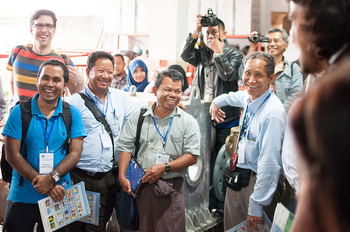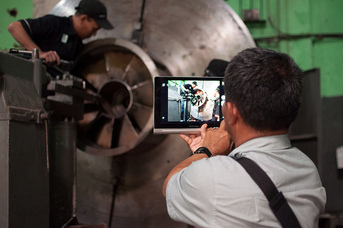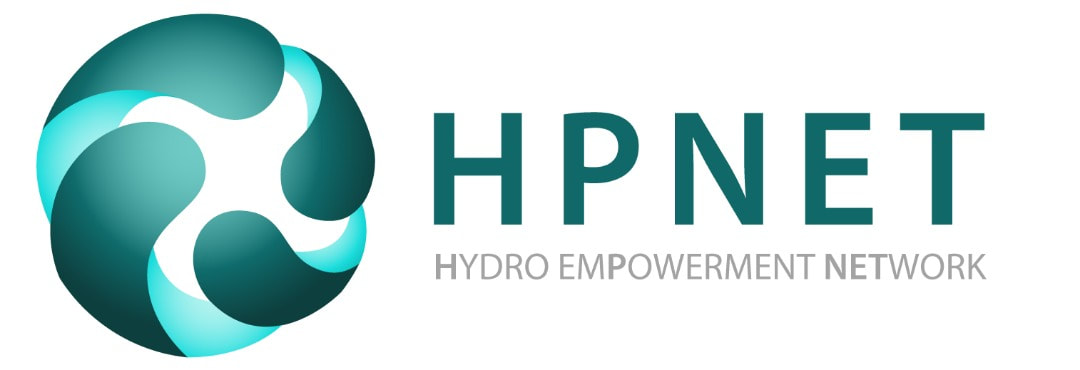Thanks to ground-truthing research done by the Renewable Energy Association of Myanmar (REAM), we came to know that Myanmar's micro hydro practitioners quietly, over the last few decades, have been designing, fabricating, installing, and sustaining several hundreds of community-owned micro hydro projects -- without external funding or technical support!
| These practitioners have self-financed most of their projects, allowing the communities to repay the capital costs within 5+ years of commissioning. Because the projects have been commissioned on very low budgets -- affordable by local communities -- they have been forced to use low quality hardware and no load controllers, leading to frequent technical issues. But things are changing for the better: | |
- In Nov. 2014, HPNET member U Aung Myint, General Secretary of REAM, spearheaded a practice-to-policy exchange on micro hydro, with support from the WISIONS SEPS grant and many others. The exchange brought proven experts from Indonesia, Nepal, and Sri Lanka to Myanmar to firsthand dialogue with policy-makers, civil society groups, international aid organizations, and practitioners.
|
- HPNET invited 2 Myanmar practitioners to its 2nd Annual Gathering of Practitioners, in Bandung, Indonesia, with WISIONS' support. The practitioners were immensely inspired by the Indonesia's thriving private sector for micro hydro. They saw the resulting transformation of turbine and load controller fabricators who had started with little experience but now offered standardized and fail-proof products. With support from GIZ, the Indonesian fabricators had long formed an association of micro hydro developers, the Asosiasi Hidro Bandung, which has 100+ members committed to high quality micro hydro development and to lobbying for supportive policy. The Indonesian progress relayed much-needed confidence to the Myanmar practitioners to build high quality hardware, be financially sustainable, and attract talented young engineers to their micro hydro work.
|
- We eagerly await to see whether SHPAM's requests are answered by the agencies involved -- particularly the World Bank, as it is assisting the Myanmar government to design its SE4ALL program this month! We are hopeful that micro hydro and other renewable energy mini grids are equally prioritized with mainstream but disenfranchising electrification paths being considered by the government and international financiers (including the World Bank).
This evolution is an example of how ground-truthing and in-person exchange can rapidly lead to new developments. Without REAM's study of the field situation and multi-actor dialogue, the local micro hydro practitioners in Myanmar would have remained invisible to the government and the World Bank, during a very critical phase in Myanmar's energy planning. And without the Myanmar practitioners' visit to Indonesia, their confidence to form an association to lobby for solutions to improve their work would not have quickly transpired.
We will keep you posted on how the micro hydro (r)evolution in Myanmar continues. :)
By Dipti Vaghela, HPNET Coordinator


